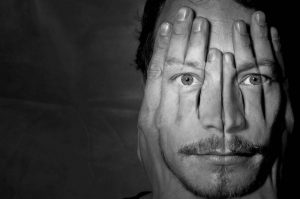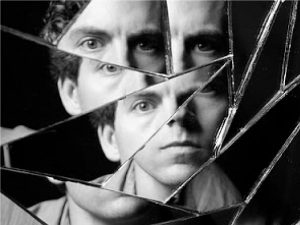
Schizophrenia is a common mental illness. However, not everyone knows that with the right treatment, a person can remain able to work.
Schizophrenia is a mental illness that has a long course and is accompanied by a mismatch of mental processes, motor skills and increasing personality changes.
The first signs of schizophrenia
Schizophrenia can develop slowly and unnoticed by the patient. The first signs of schizophrenia are usually isolation from society, social self-isolation, emotional coldness, indifference to loved ones and their appearance, loss of interest in things and events that fascinated the patient before. Sleep disturbances are possible. In adolescents, the first signs of schizophrenia can be confused with problems inherent in this age. The child may begin to study poorly, lose interest in friends, become depressed or irritable, and sleep may be disturbed.
Main symptoms of schizophrenia
The symptoms of schizophrenia are usually divided into 3 main groups. Psychotic (positive) symptoms are hallucinations (patients with schizophrenia often “hear voices”), delusions (erroneous ideas, while the patient is very difficult, if not impossible, to dissuade them). The same group of signs of schizophrenia includes perceptual disturbances, the inability to organize their own thoughts (patients may stop in the middle of a sentence and / or invent non-existent words, speech becomes confused, it is difficult to understand) and unusual movements (repeating the same movements over and over and over again). again or “fading” for a long time in a strange position – catatonia). Negative symptoms of schizophrenia: patients find it difficult to show normal emotions, they are not able to have fun, they may look depressed or out of touch with reality (they seem not to be here), they communicate little with other people. Cognitive symptoms of schizophrenia, that is, a violation of the thought process: it is difficult for patients to use newly received information, make decisions, fail to concentrate, and their memory deteriorates. Each group of symptoms of schizophrenia can be expressed to varying degrees.
Diagnosis of schizophrenia
There is no single test for schizophrenia. Consulting a psychiatrist helps determine if a patient has schizophrenia. The specialist will conduct an examination to distinguish schizophrenia from other diseases with similar symptoms. It is important to diagnose schizophrenia as early as possible, because the earlier treatment is started, the greater the chance of success.
Forms of schizophrenia
The American Psychiatric Association has abolished the division into catatonic, paranoid and disorganized schizophrenia, as this does not help to choose a treatment and understand how effective it will be. However, in the previous version of the Diagnostic and Statistical Manual of Mental Disease (DSM-IV) issued by the American Psychiatric Association, two types of classification of schizophrenia were reflected: by the nature of the course (continuous or indolent schizophrenia and paroxysmal schizophrenia) and by manifestations (catatonic schizophrenia, hebephrenic or disorganized schizophrenia, paranoid schizophrenia https://en.wikipedia.org/wiki/Schizophrenia, undifferentiated and residual).
In catatonic schizophrenia, the patient either does not speak and remains in the same position for hours and days, or vice versa – shows increased, but aimless activity: walks in circles, waves his arms, makes loud noises, grimaces, repeats the words and body movements of other people. The patient may not respond to requests and resist attempts to change his posture. Waxy flexibility is also possible – in this case, the patient’s arm or leg can be given any position, and it will remain in this position for hours. In disorganized schizophrenia, a person loses touch with reality. His thoughts are confused, his speech too. Characterized by disorganized behavior – inability to dress, bathe, cook food, start pointless arguments, as well as sluggish expression of emotions, lack of eye contact, lack of body language. Sometimes patients show emotions that are inappropriate to the situation, for example, they may laugh out loud during a serious conversation. Paranoid schizophrenia is delusions and auditory hallucinations. The characteristic features of this form are anxiety, anger, a tendency to argue, violent acts, thoughts of suicide and that someone wants to harm the patient himself or his family. In the residual form, there are negative symptoms (it is difficult for patients to show ordinary emotions, they are not able to have fun), and positive ones (delusions, hallucinations) may not be or they are mild. They say about undifferentiated schizophrenia if there are psychotic symptoms (delusions, hallucinations), but the picture does not correspond to completely catatonic, disorganized or paranoid schizophrenia.